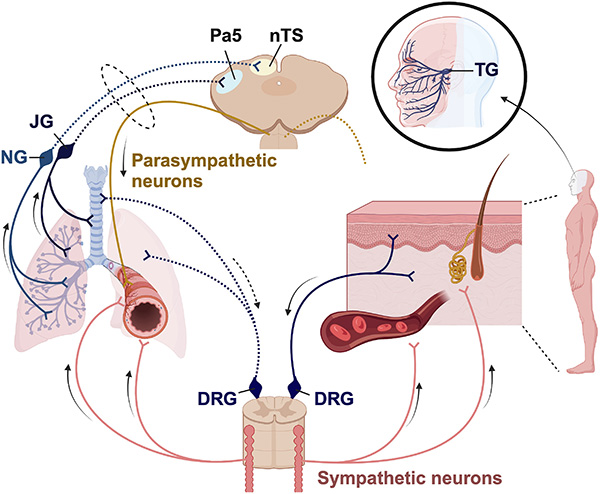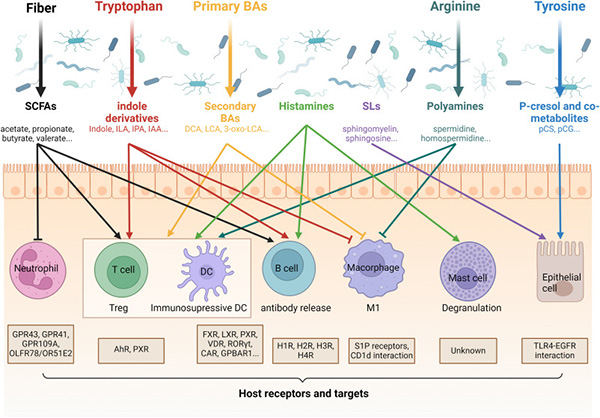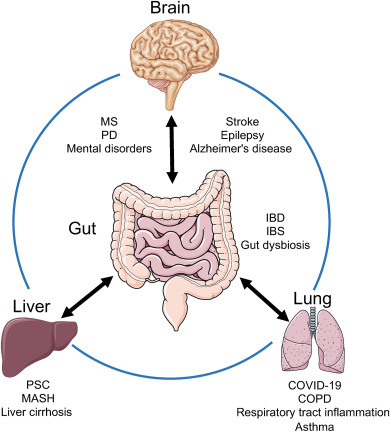Volume 74, Issue 2 (April 2025)
Review Series: The immune network across organs
The immune system functions as an intricate and dynamic network spanning multiple organs. The players include immune cells, neural circuits, and microbial communities. This issue of Allergology International presents three review articles that highlight the growing understanding of interorgan immune communication and the implications for immune-mediated disorders, including allergic diseases. These three reviews provide crucial insights into how immune pathways are regulated across different systems, suggesting potential targets for novel therapeutic interventions.
Tamari et al. describe in depth the mechanisms of neuroimmune crosstalk in type 2 inflammation, emphasizing how sensory neurons actively modulate immune responses in barrier tissues such as the skin as well as in the lungs. Understanding the neural regulation of immune responses presents an exciting opportunity in allergy and immunology, as targeted neuroimmune modulations could potentially offer more precise therapeutic options for inflammatory conditions.
Kim et al. offer an overview of the intricate interplay between commensal bacteria and immune responses, focusing on the regulatory role of microbial-derived metabolites such as short-chain fatty acids (SCFAs), indole derivatives, and secondary bile acids. These strategies may lead to personalized treatments that modify gut microbial composition to enhance immune tolerance and prevent inflammatory diseases.
Fukasawa et al. comprehensively review gut-organ interaction, especially focusing on the gut-brain axis. They include the clinical aspects of gut-brain interactions, focusing not only on intestinal diseases such as inflammatory bowel diseases and irritable bowel syndrome, but also on neurologic conditions such as multiple sclerosis, Parkinson's disease, and stroke. Gut-targeted interventions to improve systemic immune-related condition may be a promising avenue for future research and clinical applications.





